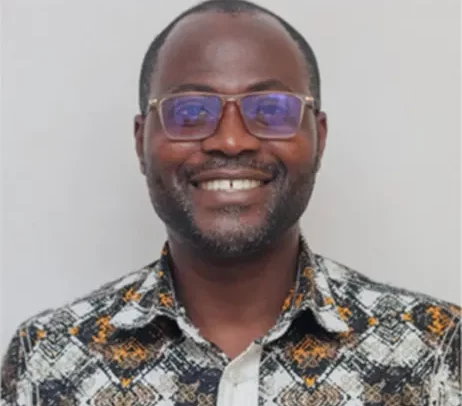Stephen Kankam
Ghana has lost a little more than 20 per cent of mangrove cover within two decades.
Environmental experts have indicated that since the country’s entire mangrove cover is not that significant as compared to other countries and given the benefits that are derived from mangrove ecosystems, those areas must be protected.
Currently, the country does not have strict protection for mangrove ecosystems, particularly because they do not fall within protected areas.
Stephen Kankam, Deputy Director of Hɛn Mpoano, disclosed this at the sidelines of a workshop organised for members of Journalists for Responsible Fisheries and Environment (JRFE) on recent Mangrove Assessment Results, at Cape Coast.
Hɛn Mpoano is a non-profit organisation dedicated to the sustainable management of Ghana’s coastal and marine ecosystems.
The assessment was done under the Building Grassroots Capacity for a Sustainable Ocean Economy in Ghana project.
The project, funded by Norwegian Agency for Development Cooperation, focuses on rebuilding Ghana’s small-scale fisheries and conserving critical ecosystems such as mangroves.
The workshop aimed among others at building capacity of journalists to report on mangrove degradation and restoration.
He mentioned that Ghana’s mangrove ecosystems are under increasing pressure due to urbanisation, fuelwood harvesting, over exploitation, aquaculture, and other anthropogenic activities.
He revealed that the assessment conducted showed a sharp decline in mangrove cover, particularly in Greater Accra and the Volta Estuary, while localised regrowth efforts in parts of the Western Region offered hope.
He mentioned that the country will always depend on mangrove resources because they have some properties that they impact on fish and the environment.
He, therefore, stressed the need for sustainable harvesting practices, adding, “There are ways one can harvest mangrove without depleting the whole forest.”
He stated, “However, there are mangroves areas that we can conserve for like 10 years.”
“There are modules Hɛn Mpoano has piloted already, and it is working to a large extent in some communities,” he added.
He then called for more government policies and regulations that can better protect the mangrove ecosystems.
From Emmanuel Opoku, Cape Coast


